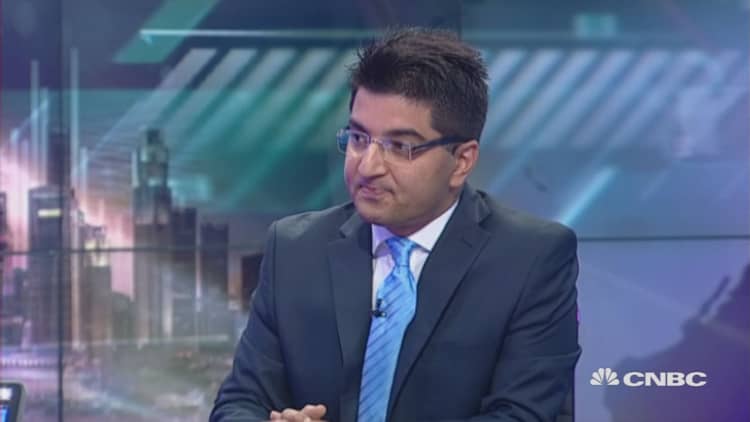Next week will likely see Myanmar, one of Southeast Asia's investor darlings, choose its first democratically elected president since the military seized power in 1962. But what should be a landmark moment in the country's history has instead been greeted with caution amid concerns over the government's commitment to reforms.
Myanmar's ruling party, the National League for Democracy (NLD) led by revolutionary icon Aung San Suu Kyi, nominated newcomer Htin Kyaw for president on Thursday. Because the NLD enjoys an overwhelming parliamentary majority, Kyaw is widely seen as a shoo-in for the job.
Because of a 2008 rule that disqualifies 70-year Suu Kyi from the presidency due to the fact that her children aren't Myanmar citizens, the pro-democracy figure intends to run the country through a proxy leader following the NLD's landslide victory last year.
Thursday's nomination raises twofold concerns: whether a proxy system can work and if it can help the NLD complete the country's transformation from pariah state to a buoyant emerging market, experts said.
"If elected; Htin Kyaw will have to function in a hybrid civilian-military political system that is still going through growing pains. How that arrangement will play out domestically and internationally is unclear," stated Maitrii V. Aung-Thwin, associate professor at National University of Singapore.
While the idea of a proxy president may be a red flag for some, others note it's the only option available to the NLD.
"Contrary to comments made by many international observers, it would have been highly unrealistic to expect a rapid change that would have allowed 'the Lady' to become president now and all to be resolved. There is a deep structural problem that will take many years to resolve," explained Jonathan Bogais, associate professor and political sociologist at the University of Sydney.
Operational details aside, the more pressing matter is whether Suu Kyi's handpicked candidate can implement long-awaited structural reforms.
"What will be important will be to assess whether this arrangement of having Suu Kyi calling the plays behind the scenes will affect the momentum of reforms that were initiated under the Thein Sein administration. Investors want stability in order to protect their returns—this arrangement, if it goes forward, creates a whole range of legal and regulatory uncertainties," said Aung-Thwin.
Former army general Thein Sein is credited with launching an economic liberalization program that has drawn major multinationals to Myanmar's thriving consumer industry. The country enjoyed an impressive 2015, with foreign direct investment (FDI) hitting a record $8 billion and the launch of its first stock exchange, but economists warn key changes are still needed for development.
These include currency regulation and allowing more private investment within key industries, such as power and infrastructure, explained Pratima Singh, senior analyst at Frontier Strategy Group, a research and advisory firm specialized in emerging markets.
"Foreign investors remain pragmatic and await more clarity as to what changes her administration will make...At the end of the day, it boils down to whether the NLD can live up to the high expectations."
Also high up on the NLD's agenda is tackling corruption, added Bogais.

The bulk of enterprises is controlled by the military, or businessmen affiliated with the military, and with the armed forces consolidating their control in several sectors of the economy with the support of foreign investors, graft is rampant, he explained.
So, who exactly is Kyaw?
Kyaw, a new name for many international watchers, is a close ally of Suu Kyi and runs a local charity. But he has little experience as a lawmaker, and only recently joined the NLD. According to local media reports, he was once a driver for the beloved national figure and specifically chosen for his fierce loyalty to her.
In Myanmar, the lower house, upper house and the military faction in parliament each get to propose a presidential candidate. Kyaw is the NLD's lower house nominee, and now the latter two groups must announce their respective choices. Once all three are official, both the upper and lower house will vote in a joint session, with the two losing nominees becoming vice president.
Voting is expected to take place next week, with the new president slated to pick his new cabinet next month, according to reports.
Kyaw's nomination is the first step to ensuring political stability in a country weighed down by ethnic tensions with its Rohingya Muslim population, not to mention a turbulent past of military coup d'etats, noted Bogais.
"Myanmar's successful democratization will be less about speedy reforms than whether the reformists can maintain political stability throughout the transition process...Kyaw is not seen as a threat to the military leaders, which is essential in this paradigm."


